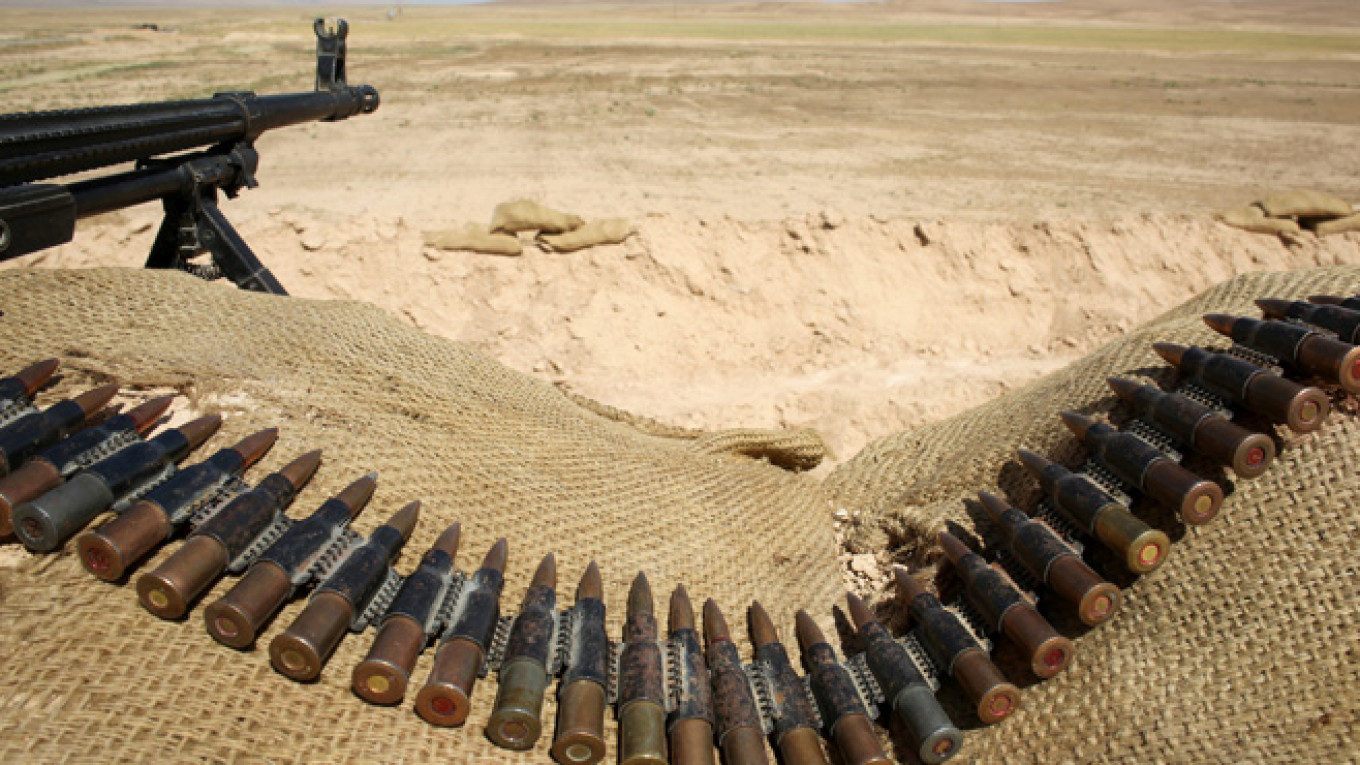It is a striking sight: Dozens of brightly burning objects light up the night, slowly descending to the ground. It looks like a magnificent display of fireworks, but the burning objects are incendiary weapons designed to destroy infrastructure and inflict excruciatingly painful thermal and respiratory burns on their victims.
Nonetheless, incendiary weapons have been raining down on a strategic area just north of the city of Aleppo, Syria almost daily for the last few weeks. The attacks came as Syrian ground forces and their allies, supported by Russian air power, have attempted to encircle the city to drive out opposition forces there.
A total of 113 countries including Russia (but not Syria) have ratified a treaty prohibiting the use of air-delivered incendiary weapons in areas with a "concentration of civilians." And in a recent letter to Human Rights Watch in response to calls to strengthen international law on incendiary weapons, Russia's Foreign Minister Sergei Lavrov acknowledged the "significant humanitarian damage" caused by incendiary weapons in Syria, which he blamed on their "improper use."
Syrian government forces have used the same kind of incendiary weapons against the opposition in Syria since 2012.
But on June 18, Russia Today published a video on YouTube filmed at Khmeimim, the Russian airbase in Syria, that included footage showing a Russian Air Force SU-34 jet armed with RBK-500 ZAB-2.5SM incendiary weapons. The footage indicates that Russia is using incendiary weapons in Syria as well.
Because of the ongoing fighting it is difficult to establish the exact impact of the recent use of incendiary weapons on civilians, but a hospital administrator in Anadan has said that he believes such weapons struck and damaged his hospital on June 16. Hitting a functioning hospital, a violation of the laws of war with any weapon, surely qualifies as "improper use."
The recent use of incendiary weapons in Syria and Russia Today's release of footage showing Russia using the weapon has attracted media attention and scrutiny from the United Nations, as well as expressions of concern from Turkey, the United States and Britain.
But incendiary weapons are just one of the types of weapons threatening civilians in northern Aleppo. Since Russia entered the air campaign at the end of September 2015, there has been a significant increase in the use of cluster munitions, especially in recent weeks. A total of 119 countries have prohibited cluster munitions under a 2008 treaty, but not Russia or Syria. For weeks we have daily recorded reports of cluster munition attacks in several governorates of Syria, particularly Aleppo and Idlib.
One reason cluster munitions have been banned is that their submunitions fall over a wide area during the attack, posing an immediate threat to civilians in the area. Because they can't be used in a way that distinguishes civilians from combatants, they are inherently indiscriminate. The other problem is that many of the submunitions fail to explode and become de facto land mines that might explode if disturbed, by children picking them up, for example.
Based on the daily posting of photos and videos showing explosive remnants of war from the fighting in Syria, there are many of these unexploded submunitions. Syria Civil Defense, a volunteer search-and-rescue organization operating in opposition-held areas, has destroyed more than 600 unexploded submunitions since they started clearing unexploded ordnance systematically in late March. Many more are probably still lying in streets or buried in fields, posing a threat to civilians.
As with incendiary weapons, photographs and videos from the Russian airbase, some of them from October and November 2015, have convincingly shown that, despite denials, Russia is also using these weapons.
And finally, we have documented significant civilian harm from regular aerial bombs — as well as the unlawful killing of civilians by armed opposition groups — in Aleppo. In just two days in early June, airstrikes killed at least 32 civilians in opposition-controlled territory and rocket attacks killed at least 22 civilians in government-controlled territory.
In a May 9 statement, the United States and Russia promised to carry out a joint assessment of attacks in Syria "leading to significant civilian casualties" and to share the results with the members of the International Syria Support Group Ceasefire Task Force and the UN Security Council. In a May 3 resolution, the UN Security Council strongly urged countries to conduct, in an independent manner, "full, prompt, impartial and effective investigations" of violations of the laws of war related to attacks on health, such as hospitals and medical centers.
So far we are not aware of any such investigations.
A Message from The Moscow Times:
Dear readers,
We are facing unprecedented challenges. Russia's Prosecutor General's Office has designated The Moscow Times as an "undesirable" organization, criminalizing our work and putting our staff at risk of prosecution. This follows our earlier unjust labeling as a "foreign agent."
These actions are direct attempts to silence independent journalism in Russia. The authorities claim our work "discredits the decisions of the Russian leadership." We see things differently: we strive to provide accurate, unbiased reporting on Russia.
We, the journalists of The Moscow Times, refuse to be silenced. But to continue our work, we need your help.
Your support, no matter how small, makes a world of difference. If you can, please support us monthly starting from just $2. It's quick to set up, and every contribution makes a significant impact.
By supporting The Moscow Times, you're defending open, independent journalism in the face of repression. Thank you for standing with us.
Remind me later.






